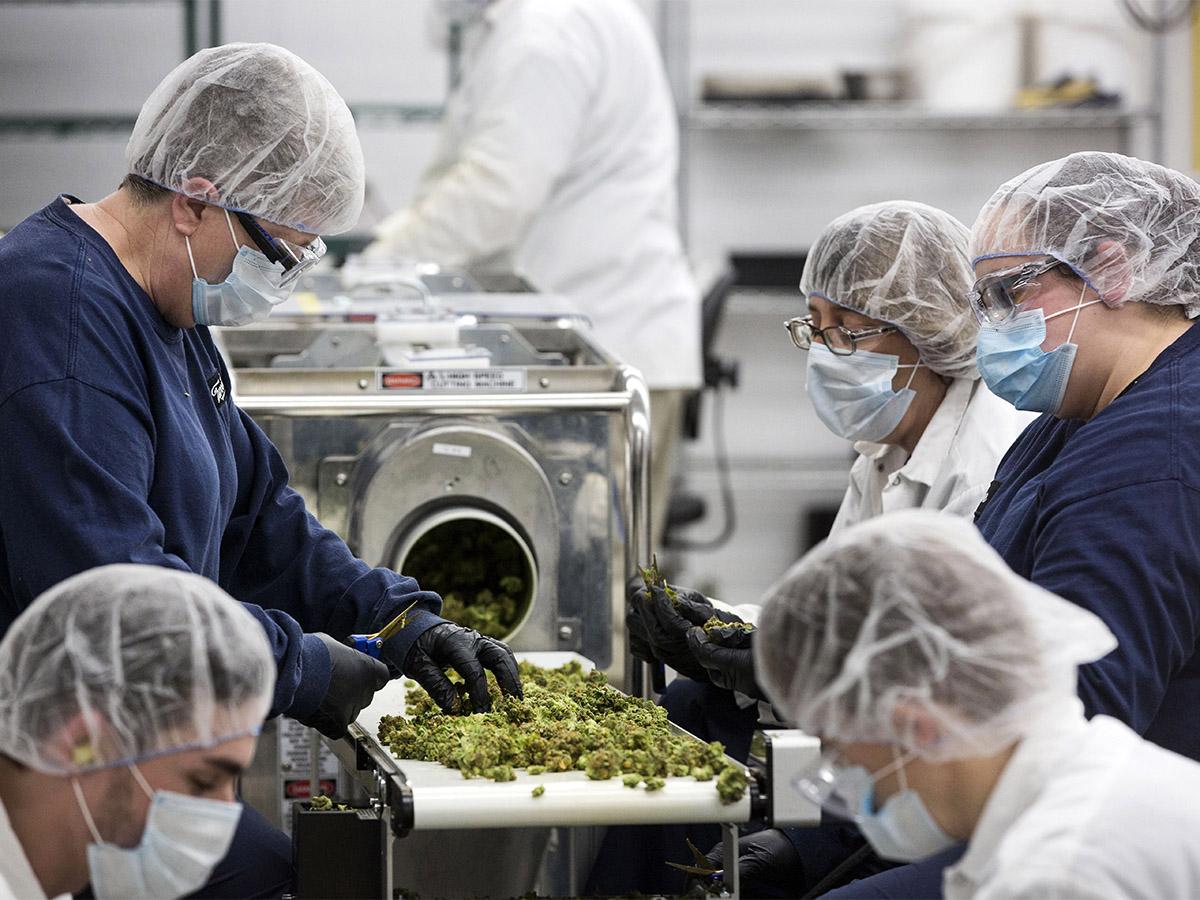Canopy Growth Corporation’s [CGC] announcement last month that David Klein would take over as CEO was generally well received by investors, with the share price rising by 14% on the day. The appointment was a welcome boost for a stock that has fallen sharply from its high of $52.74 in late April to around $20 at the start of 2020.
Part of the momentum behind the share price’s one-day jump was based on Klein’s existing knowledge of the company – he has served on Canopy’s board of directors – his experience in operating in highly regulated markets, and the understanding he has of how to build consumer brands as a former CFO of alcohol producer and marketer, Constellation Brands.
Looking at Canopy’s share price performance over the last few years, the stock barely moved between January 2015 and August 2016. An upward climb starting around October 2016 plateaued before the company’s real growth started to kick in a year later.
The share price’s bumpy ride
In 2019, the value of Canopy stock was down by over 20%. But since November, when the share price hit a low of $13.81, the stock has risen by 45% to close at $20.13 on 8 January.
“We have seen that cannabis stocks, including Canopy Growth, have been impacted by lower-than-expected demand due to the slow roll-out of retail stores across major Canadian provinces,” said The Motley Fool contributor Aditya Raghunath. “This led to Canopy Growth missing analyst revenue and earnings estimates in the last few quarters.”
Canopy Growth stock is currently valued at around $7bn. “Analysts expect company sales to rise by 85.5% to $420mn in fiscal 2020 and by 78.7% to $750.6mn in 2021,” Raghunath said. “Despite the revenue growth, analysts have forecast adjusted earnings to fall by 114% in 2020 and then rise 77.1% in 2021.”
In January 2019, Canopy secured a hemp-processing licence from the US state of New York, and in October 2018 it acquired cannabis-research firm Ebbu. But it has faced criticism from investors, who have seen the value of their shares decline sharply over the last several months.
Former co-CEO Bruce Linton has said the company drove the bubble in marijuana stocks. Although its major competitors have also suffered losses as they seek to scale up, Canopy has come under particular pressure from its investors to stop spending money on ambitious expansion plans and start generating more revenue.
“Despite the revenue growth, analysts have forecast adjusted earnings to fall by 114% in 2020 and then rise 77.1% in 2021.” - The Motley Fool contributor Aditya Raghunath
Shortly before Canopy fired Linton in July, the company had reported a Q4 net loss of about C$323mn, citing expansion and investments as reasons for this. That was a much larger loss than analysts had predicted, and its Q1 and Q2 results have done little to reassure investors. In mid-November, Canopy reported Q2 net revenue of C$76.6mn, up sharply from C$23.3mn a year earlier, but down from C$90.5mn in the previous three-month period.
Canopy’s possible growth drivers
The global cannabidiol (CBD) market was valued at $4.6bn in 2018 and is expected to experience a compound annual growth rate of 22% between 2019 and 2025, according to Grand View Research. CBD demand for medical and wellness purposes is high. In addition, growing product adoption and utilisation, owing to government approvals, are major factors expected to drive demand for CBD-infused products.
Investment bank Cowen & Co has estimated that the CBD market in the US could be worth $16bn by 2025. Brightfield Group, a market and consumer intelligence firm for the legal CBD and cannabis industries, reckons that with hemp-derived CBD gaining in popularity as well as increasing product availability and variety, US sales are on track to grow to $23.7bn by 2023 from $600mn in 2018.
$16bn
Estimated valuation of the US CBD market by 2025
But to capitalise on this growth, Canopy will have to withstand the lengthy retail licensing approval process and figure out which products to bring to the market, which are considerable challenges. With the former, there is the risk of a heightened impact from the black market for CBD products.
There are also legal and regulatory considerations. In November the US Food and Drug Administration said it was still evaluating the regulatory frameworks that apply to certain cannabis-derived products that are intended for non-drug uses. These considerations include whether and/or how it might consider updating its regulations, as well as whether potential legislation might be appropriate.
Time to buy Canopy?
The Zacks consensus estimate for Canopy’s Q3 revenue is $85.58mn, up by 36% from a year earlier. For the company’s next set of full-year results, the Zacks consensus estimates for earnings per share and revenue are -$3.75 and $320.71mn, which would represent a fall of 136% and an increase of 87%, respectively, from last year.
At the beginning of this quarter, eight of the hedge funds tracked by Insider Monkey were bullish on Canopy stock compared to the 16 that held shares or bullish call options on the company a year ago.
| Market cap | $7.1bn |
| Quarterly revenue growth (YoY) | 228.40% |
| EPS (TTM) | -1.79 |
| Price/book (MRQ) | 3.86 |
Canopy Growth share price vitals, Yahoo finance, 09 January 2019
Oppenheimer analyst Rupesh Parikh said he expects Canopy to post losses in excess of $500mn up to March 2021. But Bank of America analyst Christopher Carey said the appointment of Klein as CEO is “a clear win for Canopy” and “an important step in moving its leadership from visionaries . . . to operators,” according to a piece published by Investorplace.com.
There is also the possibility of a substantial goodwill write-down if, as some observers believe, the company has paid over the odds for its acquisitions. At the last count, goodwill accounted for 23% of the company’s total assets.
Unlike most of its peers Canopy is sitting on a large pile of cash, which means it is unlikely to run into serious liquidity issues in the near future. Piper Jaffray analyst Michael Lavery has noted that Canopy is well positioned in the sector and that its strong balance sheet is an advantage over its competitors.
Overall, in spite of some optimistic assessments of the company’s new CEO and its growth potential once more CBD retail stores open in North America, investors might want to still exercise some caution when it comes to Canopy stock.
Continue reading for FREE
- Includes free newsletter updates, unsubscribe anytime. Privacy policy





